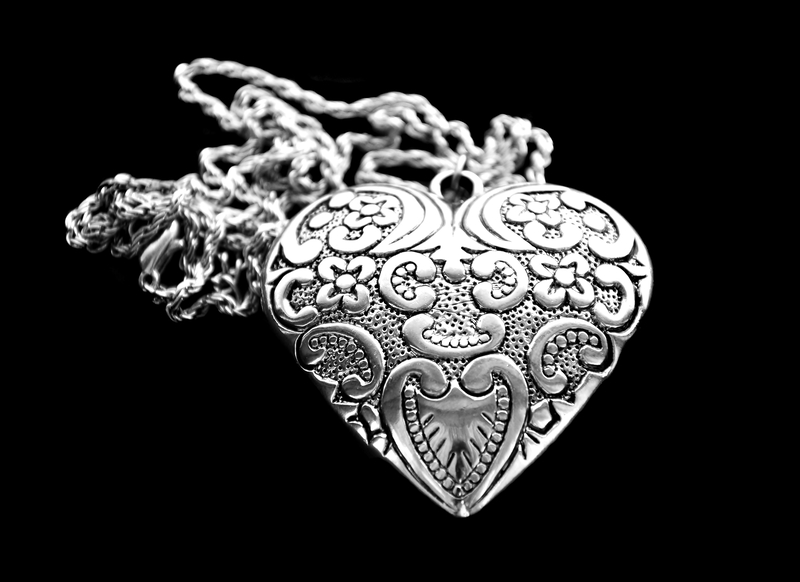Radiant Results: Effective Jewellery Cleaning Techniques
Posted on 14/06/2025
Radiant Results: Effective Jewellery Cleaning Techniques
Jewellery is more than just an accessory--it's a statement of personal style, a cherished heirloom, and sometimes, even a symbol of love. Over time, however, exposure to dust, sweat, cosmetics, and the environment can dull its brilliance. Knowing the right jewellery cleaning techniques is essential to maintaining that sparkling beauty. In this comprehensive guide, explore tried-and-tested methods for cleaning jewellery, pro secrets, and step-by-step advice for every type of piece in your collection.
Why Effective Jewellery Cleaning Matters
Jewellery--be it gold, silver, platinum, or gemstone--can lose its luster due to daily wear. Oils from skin, lotions, perfumes, and even environmental pollutants contribute to this build-up. Effective jewellery cleaning methods do more than restore shine; they protect your investment and prolong the life of your precious items. Let's underline some key reasons for regular jewellery care:
- Preserves beauty and sparkle of your pieces.
- Prevents corrosion, tarnish, and damage caused by dirt and build-up.
- Keeps settings secure, reducing risk of losing stones.
- Supports hygiene by removing invisible bacteria and contaminants.
Understanding Your Jewellery: The First Step
No two pieces are the same! The first--and most crucial--step in effective jewellery cleaning is to identify your piece:
- Material: Is it gold, silver, platinum, or something else?
- Gemstones: Does it have diamonds, pearls, opals, or other precious stones?
- Finish: Is there a plating or special coating?
_Always check manufacturer instructions_ or consult a professional before applying any cleaning method. Some stones and metals are delicate and require special care.

Homemade Jewellery Cleaning Solutions
Many effective jewellery cleaning techniques use household items. These DIY solutions provide a safe, cost-effective way to restore shine at home, especially for solid gold, platinum, silver, and diamond jewellery.
Mild Dish Soap and Warm Water
This timeless method is gentle and effective, suitable for most gemstones and precious metals.
- Mix a few drops of mild dish soap in a bowl of warm (not hot) water.
- Soak jewellery for 15-20 minutes to loosen dirt and debris.
- Brush gently with a soft toothbrush, paying attention to crevices.
- Rinse with clean water and pat dry with a lint-free cloth.
Baking Soda Paste
Best for stubborn tarnish on silver jewellery:
- Make a paste from baking soda and water.
- Apply gently with a cloth or soft brush.
- Rinse thoroughly and dry with a soft cloth.
Tip: Do not use baking soda on soft gemstones like opals, pearls, or turquoise.
White Vinegar and Baking Soda
This combination is powerful for tarnished silver but should be avoided for jewellery with soft stones.
- Place jewellery in a bowl.
- Pour half a cup of white vinegar and two tablespoons of baking soda over it.
- Soak for 2-3 hours, then rinse and dry thoroughly.
Toothpaste as a Quick Polish
- Use non-gel white toothpaste (avoid colored or gel types).
- Apply with a soft brush, then rinse and dry.
Caution: Toothpaste can be abrasive--avoid on plated or soft-surfaced jewellery.
Cleaning Different Types of Jewellery
Gold Jewellery
- Soak in mild dish soap and warm water.
- Brush lightly with a soft toothbrush (especially chains and prongs).
- Rinse and pat dry. Buff with a jewellery polishing cloth for extra shine.
Silver Jewellery
- Use a silver polishing cloth for regular touch-ups.
- Baking soda paste or a special silver cleaner for tarnished pieces.
- Store silver jewellery in anti-tarnish bags when not in use.
Diamond and Gemstone Jewellery
- Diamonds: Soak in mild soapy water, brush gently, rinse, and dry. For extra sparkle, use a drop of ammonia in the water.
Do not use this method with soft gemstones. - Colored Gemstones: Use only gentle dish soap and water; avoid harsh chemicals that might erode the stones.
- Pearls, Opals, and Turquoise: Wipe carefully with a damp, soft cloth. Avoid soaking or abrasive materials.
Costume Jewellery
- Avoid harsh cleaning agents and submerging in water, as glue or plating may dissolve.
- Wipe gently with a soft cloth.
- Use a cotton swab dipped in water for tiny crevices. Dry promptly.
Commercial Jewellery Cleaning Products
Sometimes, homemade solutions may not deliver the radiant results you need. In such cases, specialized jewellery cleaning products offer safe and powerful cleaning, especially for heavily soiled or valuable pieces.
- Liquid Cleaners: Designed for gold, silver, or gemstone jewellery. Always read labels for compatibility.
- Cleaning Cloths: Infused with cleaning agents for quick polish and tarnish removal.
- Ultrasonic Cleaners: Use high-frequency sound waves to dislodge dirt. Ideal for durable gemstones and metals but not suitable for pearls or delicate stones.
When to Seek Professional Cleaning
Some situations call for expert care. Consider professional jewellery cleaning services when:
- Your piece is valuable or antique.
- You notice loose stones, cracks, or structural issues.
- The piece contains soft, porous, or unknown gemstones.
- You want a comprehensive check and polish beyond home-cleaning.
Essential Tips for Safe Jewellery Cleaning
- _Always use a soft brush or cloth_--avoid stiff bristles that can scratch your jewellery.
- Rinse pieces over a bowl or strainer, never over an open sink, to avoid losing small items.
- Dry completely--trapped moisture can weaken settings or tarnish metals.
- Test new products on a small, hidden spot first.
- Store cleaned jewellery in a cool, dry place, away from sunlight and humidity.
What to Avoid When Cleaning Jewellery
- Harsh chemicals like bleach, acetone, or ammonia (except for diamond-only pieces in diluted form).
- Paper towels, which can scratch precious metals and stones.
- Exposure to extreme temperatures during cleaning.
- Prolonged soaking of pieces with glued settings or soft gemstones.
Maintaining Radiant Jewellery: Prevention is Key!
Even with the most effective jewellery cleaning techniques, prevention helps keep your favourite pieces sparkling year-round. Try these simple habits:
- Remove jewellery before swimming, showering, or exercising.
- Apply perfumes, hairsprays, and lotions before putting on jewellery.
- _Store pieces in individual soft pouches_ to prevent scratching.
- Regularly inspect clasps, prongs, and mounts for security.
Creating a Jewellery Cleaning Schedule
- Daily: Quick wipe with a soft cloth after wear.
- Monthly: Soak and gently clean or polish as outlined above.
- Annually: Professional inspection and cleaning, especially for valuable or intricate pieces.

Frequently Asked Questions (FAQ) About Jewellery Cleaning
How often should I clean my jewellery?
Jewellery worn daily can be gently cleaned once a month and wiped after each wear. Special pieces or those with delicate stones require less frequent, but more careful, cleaning.
Is ultrasonic cleaning safe for all jewellery?
No. Ultrasonic cleaners are effective for solid gold, platinum, and hard gemstones like diamonds, rubies, and sapphires, but can damage soft stones (pearls, opals, turquoise) or loosen glued settings.
Can I use regular household cleaners on my jewellery?
It's best to avoid household cleaners--many contain ingredients that can corrode metals or cloud gemstones. Stick to mild soap, water, and specialized jewellery cleaners for optimal radiant results.
Conclusion: Shine On with Effective Jewellery Cleaning Techniques
Your jewellery deserves the best care. By understanding your pieces, selecting the right cleaning method, and following expert advice on jewellery cleaning techniques, you can keep every gem and metal looking brilliant for generations. Whether you rely on homemade cleaning solutions or trust the delicate touch of a professional, regular maintenance ensures enduring sparkle and elegance.
Remember: when in doubt, consult a jeweller--a cherished piece is worth expert attention. Try these tips and watch your collection radiate with renewed beauty!









